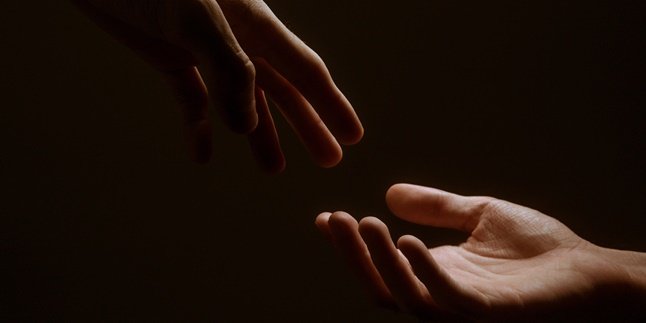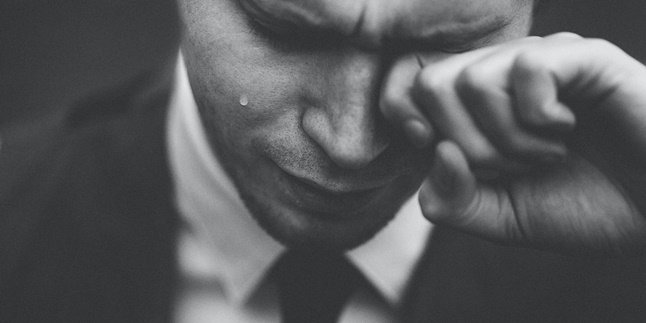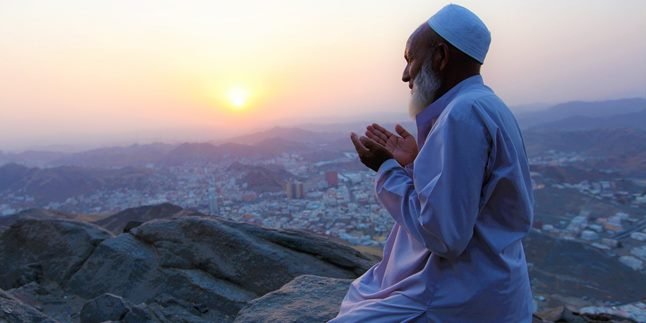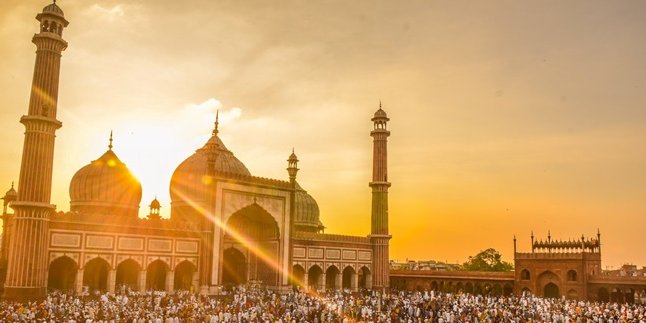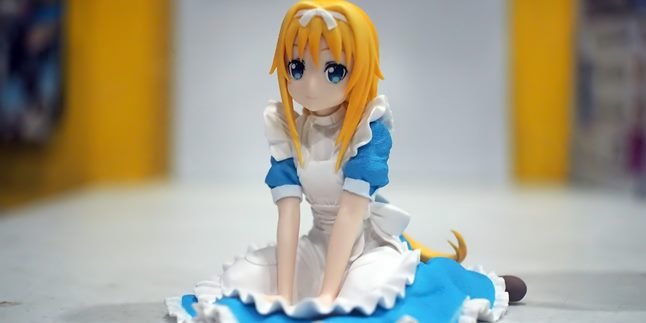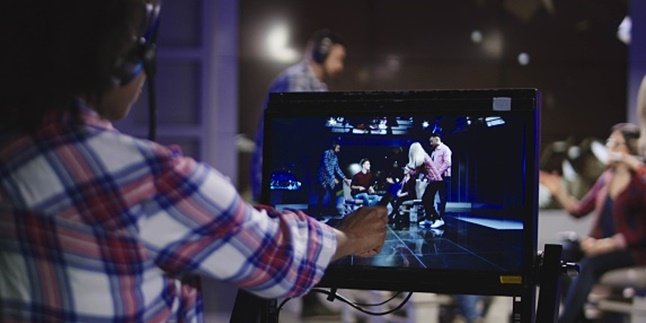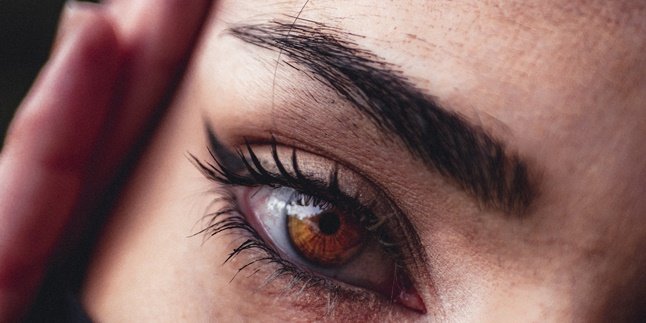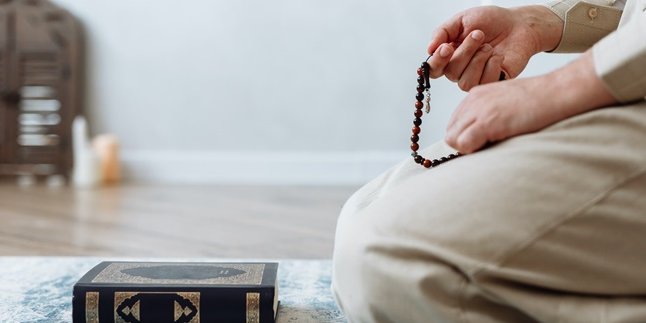Kapanlagi.com - Prayer has a number of requirements and pillars that must be done by Muslims, one of which is wudu. Wudu is included in the requirements for valid prayer because it can clean and purify oneself from minor impurities from head to toe. However, wudu also has a procedure along with prayer after wudu that Muslims need to know.
Based on its understanding, wudu can be interpreted as a way to purify oneself from minor impurities on certain parts of the body using water. The word wudu comes from the word wadha'ah, which means good and beautiful. Wudu is intended to clean certain body parts from minor impurities before facing Allah SWT through prayer.
READ ALSO: Complete wudu readings, Arabic and Latin translations, meanings, and movements
This starts in the mouth, nose, face, hands, and ends at the tip of the toes. However, wudu can also be done using dust or commonly called tayammum if there is no water nearby.
In this case, wudu is a requirement for valid prayer that must be done by Muslims. Without performing wudu, prayer can be considered invalid. Just like prayer, wudu also has various series ranging from intention, conditions, pillars of wudu, and prayers after wudu.
Prayers after wudu are important for you to know to perfect the wudu that you do. The complete reading of prayers after wudu along with its procedures can be seen through the review below.
1. Requirements of Wudu

(credit: freepik.com)
Before discussing the prayer after wudu, it is good to know what are the requirements of wudu that you need to understand. Because by knowing the requirements of wudu, it can help you in perfecting the series of wudu with the intention of worshiping Allah SWT. The requirements of wudu can be seen through the review below.
- Being a Muslim.
- Not in a state of major impurity.
- Water must be clean and free from impurities such as no smell, not dirty, or mixed with other substances.
- Able to distinguish between good and bad.
- There is nothing that can prevent water from touching the skin as a whole such as waterproof makeup or nail polish.
- Understand what is sunnah and what is mandatory.
- There is nothing that can change the nature of water that comes from the body.
2. Rukun Wudhu
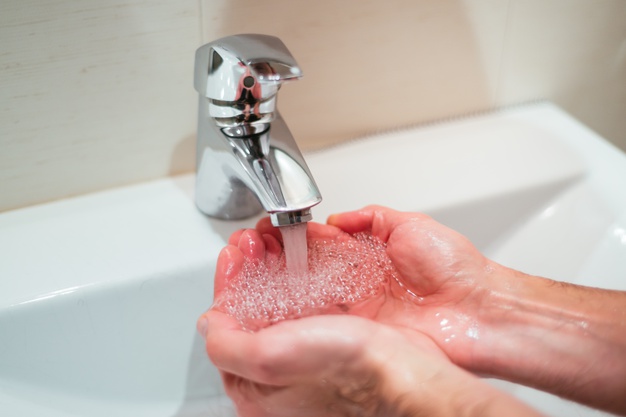
(credit: freepik.com)
After fulfilling the requirements of wudhu, there are several pillars of wudhu that you should also know. In this case, there are six pillars of wudhu that every Muslim should understand. The pillars of wudhu can be seen through the following explanation.
- Intention.
- Washing the face.
- Washing both hands up to the elbows.
- Wiping a part of the head.
- Washing both feet up to the ankles.
- Orderliness.
Quoted from liputan6.com, there are several sunnahs of wudhu that Muslims should also know. Because the following sunnahs of wudhu are the sunnahs that were exemplified by the Prophet Muhammad regarding the proper way of performing wudhu.
- Washing both palms.
- Brushing teeth with a miswak and gargling.
- Inhaling water into the nose.
- Wiping water all over the head.
- Washing both ears (inside and outside).
- Prioritizing the right side.
- Scrubbing the gaps between fingers, toes, and beard if it is long.
- Performing it three times.
- Successively, meaning continuously from beginning to end without pause.
3. Doa Setelah Wudhu

(credit: freepik.com)
If the conditions, pillars, and sunnah of wudu have been fulfilled, then you need to know the prayer before wudu, namely the intention and prayer after wudu. The first thing you need to understand about the prayer before wudu is as follows, starting with basmalah and then reading the intention.
"Nawaitul wudhuu-a liraf'll hadatsil ashghari fardhal lilaahi ta'aalaa"
Meaning: "I intend to perform wudu to remove minor impurities as an obligation to Allah."
Then you can carry out the wudu procedure according to the correct guidance and continue reading the prayer after wudu. The reading of prayers after wudu and their meanings can be seen through the review below.
Asyhadu al la ilaha illaLlah wahdahu la syarika lah, wa asyhadu anna muhammadan 'abduhu wa rasuluhu.Allahumma ij'alni minat tawwabina waj'alni minal mutathahhirin.Subhanaka Allahumma wa bihamdika asyhadu al la ilaha illa Anta astaghfiruka wa atubu ilaik.Wa shallaLlahu 'ala sayyidina Muhammad wa 'ali Muhammad.
Meaning: "I testify that there is no god but Allah, and there is no partner for Him, and I testify that indeed Prophet Muhammad is the servant and messenger of Allah. O Allah, make me one of those who repent, and make me one of those who are pure. Glory be to You, O Allah, and with Your praise. I bear witness that there is no god but You, I ask for Your forgiveness, and I repent to You. May the blessings and mercy of Allah always be upon Prophet Muhammad and his family."
If you still have enough time to pray, it doesn't hurt to recite the Al-Qadar surah once to three times after performing ablution, then continue reciting the following prayer.
Allahumma ighfir li dzanbi wa wassi' fi dari, wa barik fi rizqii, wa la taftini bi ma zawaita 'anni.
Meaning: "O Allah, forgive my sins, widen my place of residence, bless me in my sustenance, and do not test me with obstacles from You."
4. Sunnah Wudhu and Its Hadith Evidence
Wudu means purification. Performing wudu is one of the requirements for prayer to be valid. Therefore, we need to know how to do it properly. However, besides that, there are also sunnahs in wudu that can bring additional rewards. What are they?
Here are some sunnahs of wudu according to the teachings of Prophet Muhammad.
1. Using a Miswak
Before performing wudu, Prophet Muhammad actually recommended his followers to use a miswak. This is mentioned in a hadith:
From the companion Abu Hurairah RA, from the Prophet SAW who said: "If it were not difficult for my ummah, I would have ordered them to use a miswak every time they perform wudu." (HR. Bukhari and Muslim)
2. Reading Bismillah
After using the siwak and before starting wudhu, Rasulullah also advised his ummah to read the basmallah. As in the following hadith:
From the companion Anas RA, Rasulullah SAW said: Perform wudhu by mentioning the name of Allah. (HR.An-Nasa'i)
3. Reading the Intention
As explained earlier, reading the intention is something that must be done during wudhu. This is also explained in the book Al-Majmu' Syarh al-Muhadzdzab by Imam Nawawi (died 676 H), which states that it is recommended to pronounce the intention to perform wudhu before doing so.
4. Washing Both Palms
One of the sunnahs of wudhu is to wash both palms. This is as explained in the following hadith:
From the companion Abu Hurairah RA, from the Prophet SAW he said: "When one of you wakes up from sleep, do not put both hands in the water container until he has washed them first. Because he does not know where his hands were last night." (HR.Bukhari and Muslim).
5. Rinsing
Rinsing during wudhu is also part of the sunnah of wudhu. This is explained in the following hadith:
From Humran that Uthman RA asked for wudhu water: "...Then he rinsed his mouth and nose with water and blew it out. Then Uthman said: "I saw Rasulullah SAW perform wudhu like my wudhu." (HR. Bukhari and Muslim).
Bukhari Muslim)
6. Cleaning the Nasal Cavity
After gargling, a Muslim will then clean both nasal cavities. It turns out that there is a recommended movement when cleaning the nasal cavity. Here is a hadith that contains how to clean the nasal cavity:
From Humran that Uthman RA asked for ablution water: ...Then he gargled and inhaled water through his nose and exhaled it out...Then Uthman said: "I saw the Prophet Muhammad SAW perform ablution like my ablution." (HR.Bukhari Muslim)
7. Wiping the Entire Head
The next sunnah of ablution is to wipe the entire head. As a sunnah, the movement of wiping the head is explained in the following hadith:
From Abdullah bin Yazid bin Ashim about how to perform ablution, he said: "The Prophet wiped his head with both hands from front to back and from back to front." In another narration, "He started from the front of his head, wiping his hands until his neck, then returned his hands to the original position." (HR.Bukhari Muslim)
8. Wiping Both Ears
The ears are also a part of the body that is wiped during ablution. It turns out that wiping the ears is also part of the sunnah. This is explained in the following hadith:
From Ibn Abbas that the Prophet Muhammad SAW wiped his head and both ears. He inserted his two index fingers (into the inside of the earlobes), while his thumbs were on the outside of the earlobes. He wiped the outer and inner parts of his ears. (HR.Ibnu Majah)
9. Cleaning the Beard and Fingers
It is also recommended to clean the beard with fingers. As explained in the hadith:
From Anas bin Malik, when the Prophet Muhammad performed ablution, he took enough water and put it under his chin and let the water flow through his beard. He said: "This is how my Lord has commanded me." (HR.Abu Daud and Baihaqi)
10. Starting with the Right Side
When performing ablution, it is also recommended to always start with the right side of the body, then the left. The explanation related to this is found in the following hadith.
From Abu Hurairah, he said: Prophet Muhammad said: "When you dress and perform ablution, start from your right side." (HR.Ahmad, Abu Daud, Ibnu Majah, Ibnu Khuzaimah, Ibnu Hibban, and Baihaqi)
11. Performing Each Movement Three Times
In addition to starting with the right side, it is also recommended to perform each movement three times. As explained in the following hadith:
From Ibn Umar, he said: Prophet Muhammad washed each part of ablution once and said: "This is an act that Allah will not accept except in this way." Then he washed each part twice and said: "This is what makes Allah multiply the reward twice." Then he washed each part three times and said: "This is my ablution and the ablution of the Prophets before me." (HR.Daruquthuni)
12. Reciting Du'a After Ablution
Just like intention, it has been explained earlier that reciting du'a after ablution is also mandatory. It turns out that reciting du'a after ablution can bring more rewards as it is considered a sunnah. Here is an explanation of the hadith about reciting prayers after performing ablution.
From Umar, he said that the Prophet Muhammad said: Whoever among you performs ablution, completes it, and recites: "ashhadu alla ilaaha illallahu wahdahuulaa syariikalah, wa asyhadu anna muhammadan abduhu wa rasuuluh...", then the doors of heaven will surely be opened for him. (HR.Muslim and Tirmizi).
Then, in the Tirmizi narration, the reading is added: "Allahummaj'alni minat tawwabiina waj'alni minal mutathohhiriin." (HR.Tirmizi)
5. Things That Nullify Wudhu
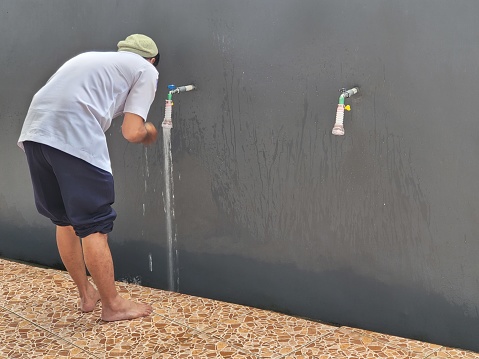
(credit: unsplash)
Learning about wudu means purification and its procedure would not be complete without knowing the things that can invalidate wudu. Yes, in Islam, there are several things that can invalidate wudu. This is important to know because invalidated wudu can also invalidate prayer.
Here are some things that can invalidate wudu:
- Losing consciousness, sleeping, being drunk, fainting, or even going insane.
- Passing gas, urinating, or defecating (except for semen, which requires obligatory bathing).
- Physical contact with a member of the opposite sex who is not a mahram.
- Touching the genitals (pubic area or anus) with the palm or fingers directly.
That is the explanation of wudu, which means purification, along with the complete prayer after wudu and its meaning and pillars. The series of requirements, pillars, and prayers after wudu above can be practiced to perfect prayer.
(kpl/gen/nlw)
Disclaimer: This translation from Bahasa Indonesia to English has been generated by Artificial Intelligence.





